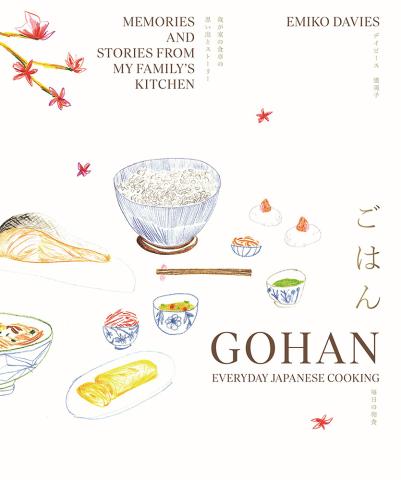Varan finns inte i lager, längre leveranstid.
| Finns i lager? | ||
|---|---|---|
| Webblager | ||
| Stockholm | ||
| Göteborg | Hämta i butik | |
| Malmö | Hämta i butik | |
| Linköping | ||
Practically any home-cooked Japanese meal revolves around rice. It sits beside miso soup, pickles, tofu and a piece of grilled fish at breakfast. It soaks up the sauce in a comforting donburi bowl, or is wrapped in nori for the ultimate portable lunch – onigiri. And it's there for dinner, perhaps served with a pickled plum, some mild Japanese curry, braised fish or even a Japanese-style Hamburg steak.
The everyday meals, cooked in the homes of Japanese mothers and grandmothers, is the food that Emiko grew up with. They're the dishes she makes for her own children: simple, satisfying food like tamagonogohan (stir fried egg and rice), soba noodle soup, Japanese curry, yakisoba, and miso soup, prepared with whatever seasonal vegetables happen to be around.
Unlike what many people think, Japanese home cooking is not fiddly, nor time consuming. It's quick and remarkably simple, thanks to the Japanese philosophy that fresh, seasonal food doesn't need much to enhance its natural flavor.
“Gohan to me means the everyday home-cooked meal. Nothing fussy. It’s quick and easy, but nourishing. A meal made with love.”
The everyday meals, cooked in the homes of Japanese mothers and grandmothers, is the food that Emiko grew up with. They're the dishes she makes for her own children: simple, satisfying food like tamagonogohan (stir fried egg and rice), soba noodle soup, Japanese curry, yakisoba, and miso soup, prepared with whatever seasonal vegetables happen to be around.
Unlike what many people think, Japanese home cooking is not fiddly, nor time consuming. It's quick and remarkably simple, thanks to the Japanese philosophy that fresh, seasonal food doesn't need much to enhance its natural flavor.
“Gohan to me means the everyday home-cooked meal. Nothing fussy. It’s quick and easy, but nourishing. A meal made with love.”
